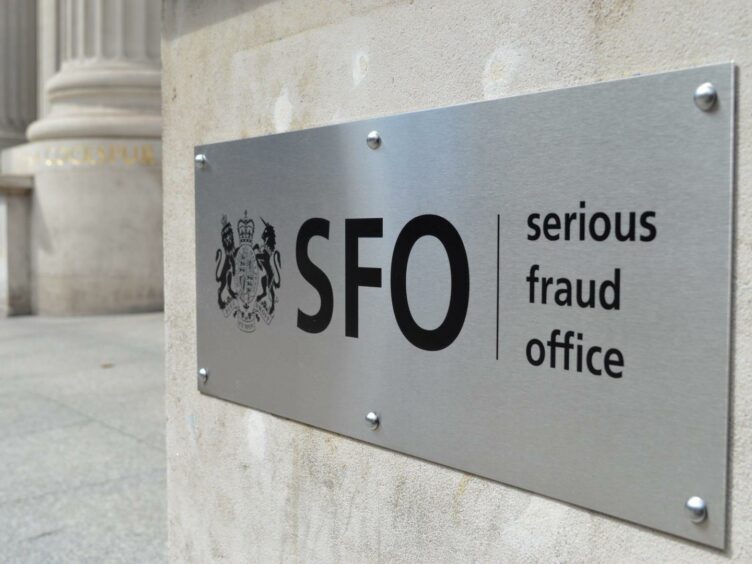
The Court of Appeal has quashed another conviction related to alleged wrongdoing by Unaoil, setting Paul Bond free today in another rebuff to the Serious Fraud Office (SFO).
The SFO celebrated Bond’s conviction in March 2021. A court sentenced him to three and a half years in prison for conspiring to bribe Iraqi officials in order to win work for SBM Offshore. The company employed Bond as a senior sales manager.
An English court also sentenced Ziad Akle, Unaoil’s Iraq manager, to five years in July 2020. However, in December 2021 the Court of Appeal ruled that Akle’s conviction was “unsafe”. It quashed the conviction and ruled out a retrial.
The same court has now upheld Bond’s appeal based on the similarities with Akle’s case. Bond launched his attempt to overhaul the conviction following Akle’s win in December.
The court raised concerns about “material non-disclosure” in the Akle case, preventing a fair trial. “It is submitted that the same logic applies to the case of Mr Bond and it follows that his trial was also unfair and his convictions should be quashed accordingly.”
While the ruling was critical, the court did not find that the SFO had acted dishonestly or in bad faith. Furthermore, it did not suggest a cover up.
Bond’s lawyer, Joseph Kotrie-Monson, welcomed the ruling. The Court of Appeal’s decision was “in no way surprising”, he said.
“Elements of the case against him reeked from the start. He was an employee of SBM the offshore buoy manufacturer, not a manager earning big bonuses. He gained nothing beyond his salary after 33 years working up from drawing diagrams for spare parts.”
The court did not find Bond to be innocent, just that the way in which the conviction was secured to be unsafe. Bond, in his initial trial, did not refer to Basil Al Jarah, unlike Akle.
Disclosure shortcomings
Spotlight on Corruption, an NGO, has said the SFO’s case on Unaoil is on “shaky ground” and facing significant costs.
“The SFO’s conduct in the case bears a number a concerning features which will be subject to independent scrutiny of the agency’s modus operandi – including unusual contact between the SFO’s director and a private investigator, and serious disclosure failings about this contact that led to the quashed conviction,” Spotlight on Corruption said.
In the Court of Appeal’s ruling on Akle, it criticised the links between the SFO and a Florida-based investigator, David Tinsley. The Ahsani family, which founded Unaoil, had retained Tinsley.
Kotrie-Monson highlighted the “material non-disclosure of vital defence evidence indicating improper conduct by the SFO” on Bond’s case. “The conduct of the SFO, including those who made the crucial decisions regarding disclosure of this material displayed an institutional arrogance, which betrayed an air of untouchability.”
Up for review
Attorney General Suella Braverman launched a review of the SFO’s activities in February. The review is due in May.
An SFO spokesperson said: “We are disappointed by today’s decision and are co-operating fully with Sir David Calvert-Smith’s review”.
The SFO changed its policy on how it works with third parties two years ago.
Bond’s lawyer called for change at the top of the SFO. SFO director Lisa Osofsky met Tinsley, Kotrie-Monson said and corresponded.
“Tinsley was a civilian employee of two defendants who had earlier fled the jurisdiction and are now convicted criminals in the United States. This all raises serious questions.
“[Osofsky] risked being a party to an unconscionable interference with a criminal trial, and then the SFO sought to withhold from the court and lawyers the extent of what they had done. Answers are now required, and judge-led enquiries, while welcome, do not deal with the immediate problem of Ms Osofsky’s continued presence as head of one of the most important prosecution offices in the world. Her position is now wholly untenable.”
Wither ESG
Quinton Newcomb, head of Commercial Crime at Fieldfisher, said it “seemed inevitable” that the Court of Appeal had reached the same conclusion on Bond as Akle.
“Given the amount of time, energy, and public funds that are invested in investigations of this nature, and the stress on those who face prosecutions, the conduct that led to these convictions being quashed is inexcusable,” Newcomb said.
“The reputation of the oil and gas sector, and the confidence of investors and other stakeholders in the industry’s increasingly important ESG credentials, depends in a very large part upon enforcement agencies holding those who are not willing to play by the rules to account.
“Where, as here, we see convictions being overturned based on the inability of an agency to perform its most fundamental of obligations properly, it undermines the interests of all of those who advocate for integrity in business, and breeds confidence in those who choose to act without it.
“In the midst of an energy crisis, in which politicians and business leaders are seeking to rehabilitate the oil and gas industry’s role in keeping the lights on, cases like this only serve to complicate the argument.”
Updated at 3:59 pm with comment from SFO and paragraph six on the Court of Appeal’s findings.
Updated on March 25, at 7:50 am, with comment from Fieldfisher’s Newcomb.
